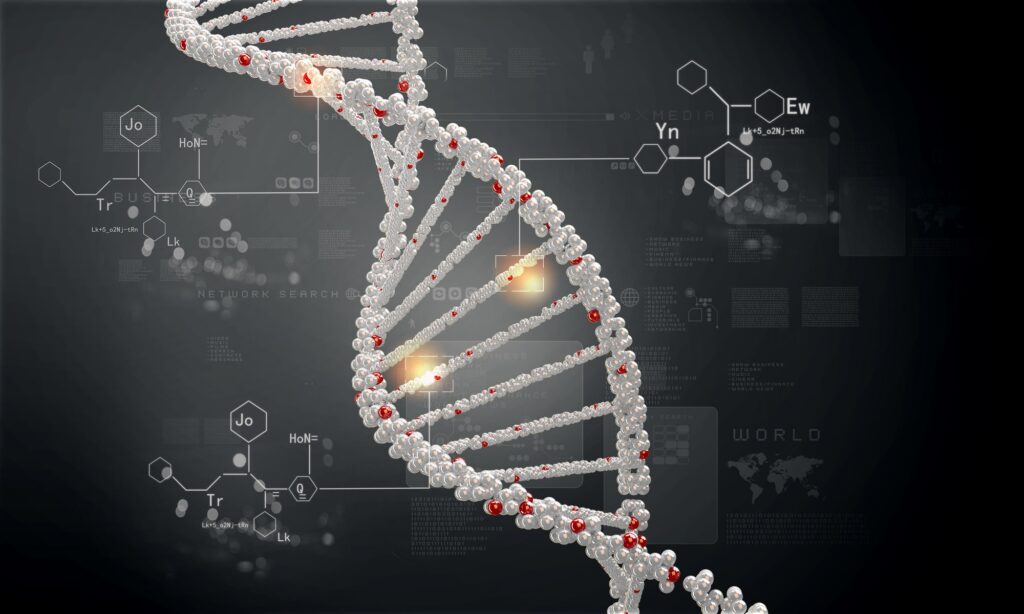
Addiction has long been one of the most complex chronic conditions to understand. For many years, a lack of understanding regarding addiction caused treatment protocols to be much less effective than they could’ve been. In recent years, research has helped addiction professionals and the medical community, at least, better understand the genetic considerations inherent in addiction for some people.
Understanding the causes of addiction is imperative in helping to resolve some of the gaps in the system that have prevented people from truly getting addiction treatment when they need it most. Overcoming addiction is challenging, and the right protocols in place can help people who’ve been struggling finally break free from the rigors of addiction. Understanding the causes of substance abuse disorders is one of the best ways to create programs that help, and acknowledging the role genetics plays is a first step.
What Is the Correlation Between Addiction and Genetic Predisposition?
Research shows that susceptibility to substance abuse may be linked to genetic causes. Understanding genetic predisposition to addictive behaviors can inform more effective treatment options and give better insight among medical professionals about the rigors of recovery from substance use disorders. Moreover, acknowledging the ways addiction may be genetic has spurred the medical community to consider possible ways to test for it. Gene expression that correlates to addiction may inform specific forms of testing that make it easier to determine who might require early intervention where possible substance use issues are concerned.
This could be life-changing for those struggling with using illicit substances, as testing for predisposition to addiction could generate early prevention methods. According to the American Psychological Association, the D2 dopamine receptor may help predict whether a person will become addicted to heroin, cocaine or alcohol. Research suggests that people with fewer numbers of these receptors may have a greater likelihood of addiction than those who have more of them. The number of receptors people have is a genetic determination. Therefore, if research allows health care providers to pinpoint the involvement of multiple genes, this may in turn contribute to more effective treatment protocols. In the future, establishing people with addiction genes may allow very early intervention to prevent addiction.
Addiction Is Considered an Inheritable Condition
Among the challenges of genetic expression where addiction is concerned is the inheritable factor. Those who have first-degree relatives who’ve had substance abuse issues (parents and siblings, for instance) may be more likely to struggle with addiction than those who don’t.
A history of trauma or lack of mental wellness among family members may also be an inheritable factor where addiction is concerned.
Are You Addicted to Drugs or Alcohol?
Addiction manifests differently in everyone, so those struggling with addiction may display just one sign of addiction or many. Some of the more common signs of drug and alcohol addiction include:
- Spending large amounts of time on behaviors or activities that will help you obtain alcohol or drugs
- Trying to stop using substances without success
- Expressing a craving or overwhelming desire to use drugs or alcohol
- Substance use that makes it challenging for you to fulfill your daily obligations at home or work
- Choosing to use drugs and alcohol despite negative impacts on relationships and situations in your life
Recognizing some of the signs of addiction is one of the first steps to getting the help you need and beginning the road to recovery. Some of these signs may not be obvious yet, or you may not feel your life is being negatively impacted by your substance use. However, the earlier you seek out outpatient substance abuse or inpatient substance abuse treatment to help overcome your substance use issues, the more likely it is that you can successfully recover. So even one or two signs is enough to indicate a need for assistance.
No Matter the Cause of Addiction, Recovery is Possible
No matter what the cause of your addiction is, the truth is that recovery is possible. Even in situations where genetics is a factor, there may be ways to overcome the issue with the right substance abuse treatment protocols. Despite the possible genes involved in determining addictive patterns, and how insurmountable that may feel if you are trying to begin the path to recovery, working with the right treatment program can change your trajectory where drugs and alcohol use are concerned.
Click here to learn more about how addiction treatment can help you get your life back on track, even if genetics play a role in your issues with substance use disorder.





